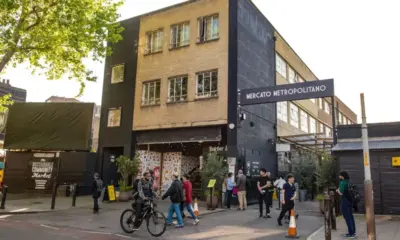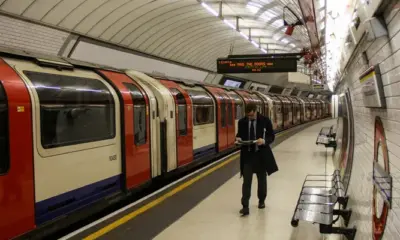Entertainment
Iconic nightclub in Elephant & Castle to close after 25 years of beats
One of London’s most legendary nightlife landmarks is preparing to shut its doors. An iconic nightclub in Elephant & Castle, long hailed as a cultural hub for electronic music and underground beats, will officially close after 25 years of defining the city’s nightlife. Known for its gritty atmosphere, vibrant dance floors, and ability to launch DJs into international stardom, the venue has been more than just a club. It has been a community, a movement, and a sanctuary for generations of Londoners and global visitors. The announcement has sparked both nostalgia and frustration, as fans grapple with what feels like the end of an era for South London nightlife.
A cultural institution of London
Since its opening in the late 1990s, the nightclub became synonymous with the growth of electronic music in the United Kingdom. From house and techno to drum and bass, it offered a stage for emerging artists and legendary performers alike. Elephant & Castle, once overlooked in the city’s nightlife circuit, became a hotspot thanks to the club’s influence. Its reputation for boundary-pushing sound systems, marathon sets, and diverse lineups positioned it as a key institution in global club culture.
The role of community
What made this nightclub unique was not just its music but the community it fostered. For many young people, it was a place to meet like-minded friends, explore creative expression, and find a sense of belonging. It also brought together diverse groups from across the city, cutting through social and cultural boundaries in ways that few other spaces could. The closure announcement has therefore been felt as a personal loss for thousands who found their identity and friendships on its dance floors.
Why the closure now
The reasons behind the closure are tied to a mix of economic pressures and urban development. Rising rents, stricter licensing rules, and the ever-growing wave of gentrification in South London have made it increasingly difficult for independent venues to survive. Developers have eyed the valuable real estate around Elephant & Castle for years, transforming the area into a hub of high-rise apartments and commercial spaces. For many, the nightclub’s fate is another reminder of how cultural institutions are often the first casualties of urban redevelopment.
Impact on the London nightlife scene
London has already lost several legendary venues over the past decade. From Fabric’s temporary closure battles to the permanent loss of smaller independent clubs, the city’s nightlife has faced repeated challenges. The end of this Elephant & Castle icon adds to fears that London is losing its soul to real estate speculation. Nightlife has long been part of the city’s global appeal, attracting tourists, artists, and students from across the world. With every closure, that reputation comes under greater strain, raising questions about how the capital can balance development with cultural preservation.
Musical legacy
Over the years, the club became a launchpad for some of the most respected DJs and producers in the global music scene. Many of today’s electronic music stars credit the venue with giving them their first significant break. Legendary all-night sets became part of its identity, with fans queuing around the block for a chance to hear acts that blended underground innovation with mainstream crossover. The sound systems, lighting, and raw energy of the club have been etched into London’s collective memory.
Fan and artist reactions
The announcement of the closure has led to an outpouring of emotion across social media. DJs, producers, and fans shared their memories of nights spent dancing until dawn, friendships formed in the smoking areas, and careers launched from the club’s decks. Petitions have already been started to save the venue, though the likelihood of success remains slim given the financial and legal pressures surrounding the site. Still, the community response reflects the deep emotional ties that Londoners have with their nightlife institutions.
Wider implications for culture
The closure of the Elephant & Castle nightclub raises broader questions about the city’s cultural landscape. London is home to world-class museums, galleries, and theatres, but its club culture has been equally important in shaping its identity as a global city. The disappearance of grassroots venues risks creating a sterile nightlife environment dominated by commercial interests rather than creativity and experimentation. As many young people note, these venues are as vital to London’s culture as the West End or the British Museum.
Searching for solutions
Some cultural policymakers argue that London must develop stronger protections for its nightlife venues, similar to initiatives seen in Berlin and Amsterdam. These cities have recognized the economic and social value of their club cultures, granting them legal protections and support to survive urban pressures. If London wants to remain at the forefront of global culture, it may need to rethink its approach to safeguarding the spaces where creativity thrives. The closure of this Elephant & Castle institution might serve as a catalyst for that conversation.
Conclusion
The closure of the iconic nightclub in Elephant & Castle marks the end of an era for London’s nightlife. For 25 years, the venue was more than a club: it was a cultural hub, a community builder, and a launchpad for global talent. Its disappearance highlights the challenges facing independent venues in an increasingly expensive and regulated city. While the loss is painful, it also shines a light on the urgent need to protect the cultural spaces that make London unique. Whether policymakers and communities can rise to that challenge remains to be seen, but the legacy of this club will continue to resonate in the city’s music, memories, and identity.






















